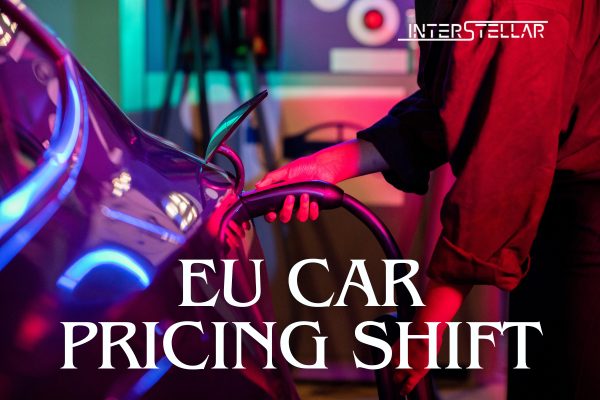European Automakers Hike Petrol Car Prices to Meet Stricter Emission Targets
European automakers are raising prices on petrol vehicles and offering discounts on electric cars (EVs) to comply with tougher EU emissions rules set to take effect on January 1. The new regulations require at least 20% of total car sales to be electric, or automakers will face significant fines.
Tougher Emissions Rules and the EV Gap
The EU’s stricter carbon dioxide limits pose a major challenge for the automotive industry. While the target demands one-fifth of sales to come from EVs, only 13% of vehicles sold in 2023 have been electric, according to the European Automobile Manufacturers’ Association (ACEA).
Marc Mortureux, Director of French car lobby PFA, highlighted the growing concern: “The gap is really big.” The industry is already struggling with weak demand, rising competition from Chinese EV makers, and declining government subsidies for electric vehicles.
Amid these pressures, automakers like Volkswagen, Stellantis, and Renault are increasing prices for petrol cars to curb demand for high-emission models and make EVs more attractive. Analysts believe this strategy aims to steer buyers toward electric vehicles and help manufacturers avoid fines that could total up to €15 billion based on current sales figures.
European Automakers Adjust Pricing to Boost EV Sales
To encourage EV adoption, automakers are strategically increasing petrol car prices. For example:
- Peugeot raised prices in France on all petrol models by up to €500, while keeping electric models unchanged.
- Renault increased prices on select petrol models, such as the Clio SCE 65, by €300, while hybrid prices remained stable.
Beatrix Keim from the Center for Automotive Research noted, “Carmakers are steering demand towards battery EVs to reach CO₂ targets and avoid potential fines.”
However, industry experts warn that this strategy might not succeed due to weak market growth. A source from a leading European automaker suggested that raising petrol car prices could harm production levels and disrupt the supply chain, affecting suppliers who rely heavily on combustion engine vehicle production.
Discounts on EVs and Emission “Pooling”
Automakers are also planning EV discounts to stimulate demand, using the increased petrol car prices to fund these cuts. For example, Volkswagen reduced the price of its ID.3 electric compact car in several markets, bringing it below €30,000 in Germany.
Alastair Bedwell from GlobalData predicts that EV sales in Europe, including the EU, Britain, and other regions, will rise 41% by 2025 to reach 3.1 million units.
While discounting boosts EV sales, it impacts already thin margins. In the UK, industry experts estimate that meeting EV targets could cost automakers £6 billion this year alone, with £4 billion attributed to discounts.
To avoid heavy fines, carmakers are also turning to “emission pooling”. This involves purchasing credits from manufacturers with a larger share of EV sales. For instance, Suzuki partnered with Volvo to pool emissions in 2025, a move that will likely eliminate any threat of fines for Suzuki.
Industry Calls for Relief from EU Targets
Despite efforts to comply, automakers remain concerned about the financial burden of meeting the new targets. The industry is urging the European Commission to reconsider the rules.
Luc Chatel, President of PFA, expressed frustration at the Paris Auto Show in October: “I can’t sell enough electric vehicles, and I’m penalised on thermal vehicles. What do they want me to make, horse-drawn carriages?”
The combination of rising costs, economic uncertainty, and limited EV demand has left automakers navigating a challenging road ahead as they strive to meet the EU’s emissions requirements.
With inputs from Reuters





